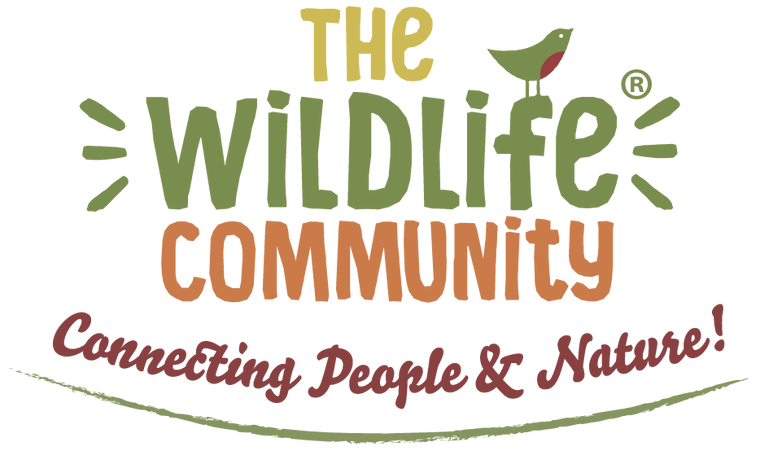The Wildlife Community Blog
This upcoming Thursday (13th November) is annual World Kindness Day. Now in its 27th year, the international observance was set up in 1998 by the World Kindness Movement to celebrate and promote acts of kindness. This may be things as simple as smiling at a stranger or offering to pay for someone's coffee. But did you know that these acts of kindness can be extended to the fauna who we share the planet with? Below we have gathered some of our tried and tested products that we know animals will benefit from. We all know the impact that the change in the climate is having on our native species, so now is the perfect time to lend a helping hand out to animals this World Kindness Day.
Read more
Halloween has become an ever-increasingly popular event in the UK, with a record £537 million estimated to be spent on it this year. As we approach the Halloween season, it is important to keep in mind how our choices affect who we share the planet with, and the small changes we can make to help wildlife in our community. Here are 3 top tips that you can think about this spooky season to protect wildlife whilst also enjoying this time of year.
Read more
Once a much more common sight in the UK, the numbers of red squirrels on our shores have slowly whittled down throughout the years because of their American cousins. Now only seen mainly in Scotland, there has been a conscious effort to try to boost their numbers by conserving red squirrels throughout the UK. Established by the UK Squirrel Accord, Red Squirrel Awareness Week aims to raise awareness of the plight of the reds by hosting talks and events across the country, and by exploring the ways in which you can help a species very much in need.
Read more
By now we should all know the importance of recycling, however 79% of households miss one or more items from their recycling each year. Running from 22nd September to 28th September, Recycle Week is Recycle Now's flagship event where different sectors come together to raise awareness of the importance of recycling. With nearly 2.3 billion recyclable items ending up in the rubbish each year, read on to find how you can become a recycling hero and prevent landfill in the UK.
Read more
You may think that the organic movement is a new thing, however its 'roots' go all way back to 1946, when the association was founded. We seem to associate organic with higher prices, but what does organic actually mean and what are the benefits of using organic products? Read on to find out how living organically can help you, whilst also helping the planet in the long run.
Read more
On the last full weekend of August, more than 30 countries take part in International Bat Night, which this year is running between Saturday 30th August and Sunday 31st August 2025. Organised by Eurobats, the event is aimed to shed a light on the way that bats live and their needs through presentations, bat walks and exhibitions. Find out more about bats below and their role in our ecosystem.
Read more
With the increase in temperatures across the UK which is now becoming a more common occurrence, the wildlife in our gardens is beginning to suffer. Whilst some of us may enjoy the heat, our friends outside often struggle to cope in intense temperatures, especially during prolonged periods. Luckily there are some simple actions that we can take to help provide some much-needed care for nature during heatwaves.
Read more
The familiar flutter of a Peacock or the vibrant flash of a Small Tortoiseshell are cherished sights in British gardens. However, beneath this surface of common beauty lies a stark reality: many of our native butterfly species are in severe decline, with over half facing long-term threats. For the dedicated wildlife gardener, the ambition extends beyond simply attracting common visitors – it involves understanding and contributing to the broader conservation efforts that can bring back even our rarest and most threatened butterflies.
Read more
The sight of a hedgehog snuffling through the undergrowth is a joyful one, but behind that charming exterior lies a species facing significant challenges. European hedgehogs (Erinaceus europaeus) in the UK are now classified as vulnerable to extinction, with populations having suffered alarming declines in recent decades. Understanding their behaviour, particularly their nesting habits, is vital to their survival, and this is where human intervention, through providing artificial homes, can play a transformative role.
Read more
National Children’s Gardening Week (NCGW) is a UK-wide campaign that inspires families to enjoy the outdoors together and encourages children to discover the fun and learning that gardening brings. Taking place from Saturday, 24 May to Sunday, 1 June 2025, the week is timed perfectly to coincide with the May half-term, making it an ideal opportunity for schools, families, and communities to connect
Read more
World Bee Day is celebrated on 20th May each year, and in 2025, the theme is “Bee Engaged with Youth”. This day is a global reminder of the importance of bees and other pollinators in supporting biodiversity, ecosystems, and our food supply.
Read more
May 10th marks the first of two annual celebrations of World Migratory Bird Day — a global campaign dedicated to raising awareness about the incredible journeys of migratory birds and the challenges they face. This year’s theme, "Shared Spaces: Creating Bird-Friendly Cities and Communities," highlights the importance of designing environments that support both birds and people.
Read more














